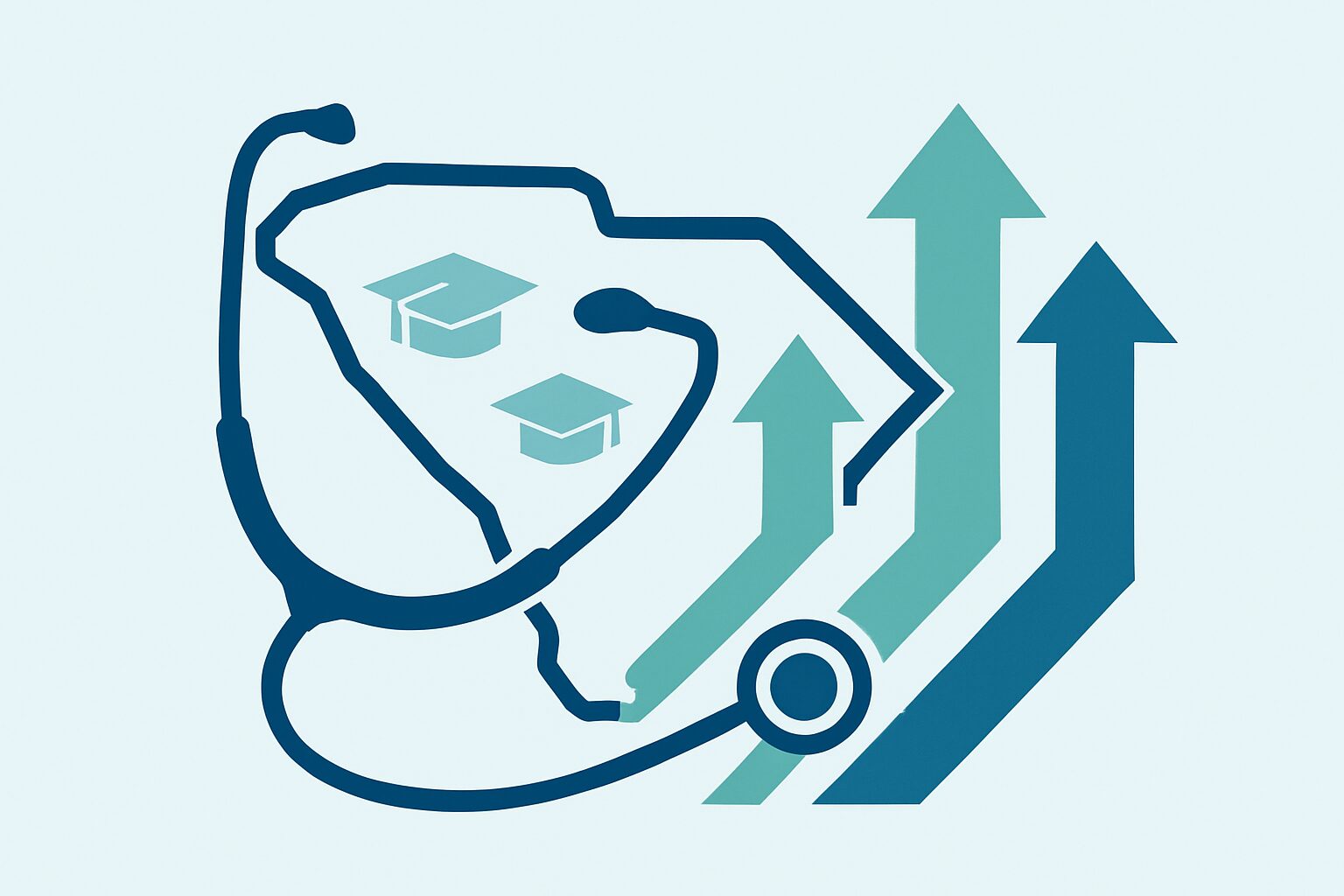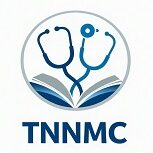Top South Carolina RN to BSN Degree Programs: Your Guide to Advancing Your Nursing Career
Introduction
The Changing Face of Nursing: Why BSNs are Increasingly Essential
The healthcare landscape is in constant evolution, demanding nurses equipped with advanced skills, critical thinking abilities, and leadership potential. Within this dynamic environment, the role of the Registered Nurse (RN) has expanded significantly. Consequently, the educational standard for nursing practice is shifting, with a growing emphasis on the Bachelor of Science in Nursing (BSN) degree. This trend is not arbitrary; it is driven by compelling evidence linking higher education levels to improved patient outcomes and the need for nurses prepared to navigate complex healthcare systems.
Influential bodies within the healthcare sector have long advocated for a more highly educated nursing workforce. A pivotal moment came with the Institute of Medicine’s (IOM), now the National Academy of Medicine (NAM), landmark 2010 report, “The Future of Nursing: Leading Change, Advancing Health.” This report strongly recommended increasing the proportion of RNs with a baccalaureate degree to 80% by 2020. The rationale was clear: nurses needed enhanced competencies in areas like leadership, health policy, system improvement, research, evidence-based practice, and teamwork to meet the demands of a transforming healthcare system and the changing needs of patients. While the 80% goal was ambitious and progress varied regionally, the report catalyzed a national movement toward BSN education. Subsequent reports, including the “Future of Nursing 2020-2030: Charting a Path to Achieve Health Equity,” continue to underscore the importance of robust nursing education in addressing health disparities and improving health for all.
This national push is reflected in employer hiring practices. Data from the American Association of Colleges of Nursing (AACN) consistently shows a strong and growing preference among healthcare employers for BSN-prepared nurses. Recent surveys indicate that nearly 28% of employers now mandate a BSN for new hires, while a significant 72% express a strong preference for baccalaureate graduates. This preference is particularly pronounced in hospitals seeking or holding Magnet Recognition Program® status, an indicator of nursing excellence. Furthermore, the percentage of the RN workforce holding a BSN or higher degree has steadily increased, surpassing 70% for the first time in 2022, with most new nurses now entering the field with a BSN or entry-level master’s degree. This convergence of recommendations from national bodies, tangible employer preferences, and workforce trends signals a fundamental shift where the BSN is increasingly becoming the expected standard for professional nursing practice.

Navigating Your Path: Your Guide to RN to BSN Programs in South Carolina
For Registered Nurses in South Carolina holding an Associate Degree in Nursing (ADN) or a nursing diploma, pursuing a BSN represents a critical step toward career advancement, enhanced skills, and alignment with industry expectations. Recognizing the unique needs of working professionals – particularly the demand for flexibility, affordability, and relevant coursework – this guide explores the top RN to BSN programs in SC. It focuses on accredited RN to BSN South Carolina options, including flexible online RN to BSN programs SC, to help practicing nurses make informed decisions about obtaining their RN to BSN degree South Carolina. This comprehensive resource aims to provide the necessary information to navigate the available pathways and confidently invest in the next stage of a rewarding nursing career.
Section 1: Elevate Your Nursing Career: The Compelling Benefits of a BSN
Earning a Bachelor of Science in Nursing (BSN) offers Registered Nurses (RNs) a multitude of advantages that extend far beyond the classroom. It represents a significant investment in professional growth, opening doors to new opportunities, enhancing skills, and positioning nurses for long-term success in an increasingly complex healthcare environment.
Unlocking Doors: Career Advancement and Leadership Opportunities
One of the most significant benefits of obtaining a BSN is the expansion of career opportunities. While an ADN provides the foundation for RN licensure and practice, a BSN equips nurses with a broader skillset, including enhanced critical thinking, leadership, communication, and understanding of health policy and community health principles. This advanced preparation makes BSN graduates highly competitive candidates for roles that often require a higher level of education and responsibility.
A BSN can be the key to unlocking positions in nursing management, administration, education, research, case management, informatics, and public health nursing. Specific roles such as nurse manager, clinical nurse leader, director of nursing, nurse educator, and quality improvement coordinator often list a BSN as a minimum requirement or strong preference. Furthermore, certain prestigious healthcare organizations and sectors, including the U.S. military (Army, Navy, Air Force), the U.S. Public Health Service, the Department of Veterans Affairs (for promotions beyond entry-level), and hospitals with Magnet designation, often require a BSN for RN positions or leadership roles. Earning a BSN, therefore, not only broadens the scope of potential job opportunities but also increases eligibility for leadership pathways and specialized career tracks within the nursing profession.
Investing in Yourself: Salary Potential and Financial Growth
The financial benefits of pursuing an RN to BSN degree are substantial and represent a significant return on investment. Numerous sources report a considerable difference in average annual earnings between nurses with an ADN and those with a BSN. Data from organizations like Payscale and the American Nurses Association (ANA) consistently suggest that BSN-prepared nurses earn, on average, approximately $17,000 more per year than their ADN counterparts – with typical BSN salaries ranging from $92,000 to $96,000 annually, compared to $75,000 to $79,000 for ADN holders. Some sources also indicate differences in average hourly wages. While the U.S. Bureau of Labor Statistics (BLS) typically reports a median annual wage for all RNs (which was $93,600 as of May 2024), the salary advantage for BSN holders is widely acknowledged within the profession.
This salary differential translates into a significant long-term financial advantage. Over a 30-year nursing career, the cumulative earnings difference between a BSN and an ADN can exceed half a million dollars. This increased earning potential reflects the advanced skills, broader knowledge base, and expanded responsibilities that BSN-prepared nurses bring to their roles, making them highly valued assets in the healthcare workforce. While nursing remains a calling driven by compassion, the enhanced financial stability and growth potential associated with a BSN are compelling factors for RNs considering further education. It is worth noting that the median RN salary in South Carolina (around $78,380 to $79,900 according to recent data) is below the national median, potentially making the salary boost from a BSN even more impactful for nurses within the state. The overall job outlook for RNs remains strong, with the BLS projecting 6% growth from 2023 to 2033, faster than the average for all occupations.
Sharpening Your Skills: Enhanced Clinical Competency and Critical Thinking
BSN programs offer a more comprehensive and in-depth educational experience compared to ADN or diploma programs. While all pre-licensure programs provide foundational nursing knowledge and skills, the BSN curriculum typically delves deeper into theoretical underpinnings and incorporates broader subject matter. Coursework in a BSN program emphasizes the development of critical thinking, clinical reasoning, problem-solving, leadership, and communication skills – all essential for navigating the complexities of modern healthcare.
RN to BSN programs, specifically, build upon the existing clinical experience of practicing nurses, adding layers of knowledge in areas such as evidence-based practice, nursing research utilization, health assessment across the lifespan, community and public health nursing, health policy, healthcare informatics, and nursing leadership and management. This expanded education prepares nurses to practice across a wider variety of settings, manage complex patient cases more effectively, understand the social, cultural, political, and economic factors influencing health, and contribute to quality improvement initiatives. The result is a nurse who is not only clinically proficient but also better equipped to analyze situations, make complex decisions, lead healthcare teams, and adapt to the evolving demands of the profession.
Meeting the Standard: Why Healthcare Employers Prefer BSN-Prepared Nurses (Including Magnet Status Link)
The strong employer preference for BSN-prepared nurses is a significant factor influencing career trajectories. This preference stems from multiple sources, including the national push for a more educated workforce initiated by the IOM/NAM reports and the growing body of evidence linking BSN education to improved patient outcomes. A key driver, particularly within the hospital sector, is the pursuit of Magnet Recognition Program® status, awarded by the American Nurses Credentialing Center (ANCC).
Magnet designation signifies nursing excellence and is associated with higher quality patient care, improved patient satisfaction, better nurse work environments, and higher nurse retention rates. Hospitals strive for this prestigious designation as a benchmark of quality. While the Magnet program does not mandate a specific percentage of BSN-prepared staff nurses across the entire organization, it does have stringent requirements regarding nurse leadership qualifications. Specifically, 100% of nurse managers and nurse leaders (including the Chief Nursing Officer, who often needs a master’s degree) must hold a BSN or higher degree. This requirement directly incentivizes Magnet-aspiring or designated hospitals to hire and promote BSN-prepared nurses into leadership roles.
Furthermore, the Magnet model emphasizes structural empowerment, exemplary professional practice, new knowledge and innovation (including research and evidence-based practice), and transformational leadership – areas where BSN education provides a stronger foundation. Given the association between higher BSN percentages and positive patient outcomes, which aligns with Magnet’s core goals, these institutions logically exhibit a strong preference for BSN graduates even for staff nurse positions. Therefore, for RNs seeking employment or advancement opportunities, particularly in leading hospitals committed to achieving or maintaining Magnet status, a BSN is increasingly becoming a crucial credential. The national trend is further evidenced by states like New York enacting “BSN-in-10” legislation, requiring RNs to obtain a BSN within a decade of initial licensure. While South Carolina does not currently have such a law, this national movement underscores the growing importance of the degree.
Improving Patient Outcomes: The Evidence Behind BSN Education
Perhaps the most compelling reason for advancing nursing education is its positive impact on patient care. A growing body of research demonstrates a clear correlation between higher percentages of BSN-prepared nurses on staff and improved patient outcomes in hospital settings. Studies have linked increased proportions of BSN nurses to lower patient mortality rates, fewer medication errors, reduced rates of failure-to-rescue (the inability to recognize and respond to complications), lower incidence of hospital-acquired conditions like pressure ulcers (decubitus ulcers) and infections, and decreased length of patient stays.
Specific studies have quantified this impact; for example, research has suggested that a 10% increase in the proportion of BSN-prepared nurses on hospital units is associated with approximately 10% lower odds of patient death in certain populations. Other studies have linked higher BSN staffing levels to greater odds of survival following in-hospital cardiac arrest. These findings strongly suggest that the enhanced critical thinking, assessment skills, and understanding of evidence-based practice gained through BSN education directly translate into safer and more effective patient care. This evidence provides a powerful rationale for both individual nurses and healthcare systems to invest in baccalaureate nursing education.
Foundation for the Future: Pathway to Graduate Studies
For RNs with aspirations for advanced practice, specialization, or roles in academia or high-level administration, a BSN is an essential prerequisite. Admission into Master of Science in Nursing (MSN) and Doctor of Nursing Practice (DNP) programs almost universally requires applicants to hold a BSN from an accredited institution.
These graduate degrees are necessary to become Advanced Practice Registered Nurses (APRNs), such as Nurse Practitioners (NPs), Clinical Nurse Specialists (CNSs), Certified Registered Nurse Anesthetists (CRNAs), and Certified Nurse-Midwives (CNMs). Graduate education is also required for roles like nurse educators, nurse researchers, and executive nurse leaders. Therefore, the BSN serves as a critical stepping stone, providing the necessary academic foundation for nurses who envision a career path involving graduate-level education and advanced roles within the profession.

Section 2: Choosing Wisely: Key Criteria for Selecting Your RN to BSN Program
Selecting the right RN to BSN program is a significant decision that requires careful consideration of several key factors. For working RNs in South Carolina, evaluating programs based on accreditation, flexibility, cost, duration, support services, and clinical expectations is crucial for finding the best fit for individual career goals and personal circumstances.
The Seal of Quality: Understanding CCNE and ACEN Accreditation
Accreditation is arguably the most critical factor to verify when evaluating any nursing program. It serves as a fundamental quality assurance mechanism, signifying that a program has voluntarily undergone a rigorous peer-review process and meets nationally recognized standards for nursing education. Accreditation is not granted by the government but by independent agencies recognized by the U.S. Department of Education (ED) and/or the Council for Higher Education Accreditation (CHEA).
For nursing programs, the two primary national accrediting bodies are:
- Commission on Collegiate Nursing Education (CCNE): An autonomous arm of the American Association of Colleges of Nursing (AACN), CCNE accredits baccalaureate (BSN), master’s (MSN), Doctor of Nursing Practice (DNP), and post-graduate APRN certificate programs, as well as nurse residency and fellowship programs. CCNE accreditation focuses on ensuring the quality and integrity of these programs through a process emphasizing continuous self-assessment and improvement based on established standards related to mission, governance, resources, curriculum, teaching practices, and program outcomes. CCNE is officially recognized by the U.S. Secretary of Education.
- Accreditation Commission for Education in Nursing (ACEN): Recognized by both the U.S. Department of Education and CHEA, ACEN accredits all levels of nursing education programs, from practical and diploma programs up through associate, baccalaureate, master’s, and clinical doctorate programs. ACEN standards evaluate programs based on mission, faculty qualifications, student support, curriculum design, resources, and educational outcomes, ensuring graduates are prepared for safe, effective nursing practice.
Attending an accredited program is essential for several reasons:
- Quality Assurance: It provides confidence that the program meets established educational standards.
- Financial Aid Eligibility: Graduation from a program accredited by an ED-recognized agency (like CCNE or ACEN) is often a prerequisite for receiving federal student aid (grants, loans).
- Credit Transfer: Credits earned at an accredited institution are more likely to be accepted for transfer to other accredited schools.
- Graduate School Admission: Most MSN and DNP programs require applicants to hold a BSN from a CCNE or ACEN accredited program.
- Licensure and Certification: While requirements vary by state, graduation from an accredited program may be necessary for initial RN licensure, endorsement to other states, or eligibility for certain advanced practice certification exams.
- Employment Opportunities: Many employers, particularly government agencies like the VA, branches of the U.S. Armed Forces, and Magnet hospitals, prefer or require nurses to have graduated from accredited programs.
Both CCNE and ACEN are highly respected accreditors. The primary difference lies in their scope: CCNE focuses solely on baccalaureate and higher degree programs, while ACEN accredits the full spectrum of nursing education. Programs should clearly state their accreditation status on their websites or in program materials. Verifying accreditation through the official CCNE or ACEN websites is a crucial first step. Enrolling in a non-accredited program carries significant risks, potentially hindering financial aid access, credit transferability, graduate school options, and employment prospects. Accreditation is the baseline indicator of a program’s legitimacy and quality within the nursing profession.
Fitting Your Life: Program Flexibility (Online, Hybrid, Part-Time, Accelerated Options)
For working RNs, program flexibility is paramount. RN to BSN programs are often designed with this need in mind, offering various formats and pacing options:
-
Delivery Formats:
- Online: This is the most common format for RN to BSN programs, allowing students to complete coursework remotely. Many are asynchronous, meaning students can log in and complete work on their own schedule. However, it’s important to verify if any synchronous elements exist, such as required live online class sessions or group meetings that necessitate specific login times. Some online programs may also require an initial on-campus orientation.
- Hybrid: These programs blend online coursework with some mandatory face-to-face components, such as on-campus classes, labs, or meetings. This format may appeal to students who value some in-person interaction but still need flexibility.
- Campus-Based: While less common for RN to BSN completion tracks, some programs may still offer traditional, fully on-campus options.
-
Pacing Options:
- Full-Time: Allows for quicker completion, often within 12 to 18 months. This requires a significant time commitment.
- Part-Time: Students take fewer courses each semester, extending the overall program length (often 2 years or more) but making the workload more manageable alongside work and other responsibilities.
- Accelerated/Self-Paced/Competency-Based: Some programs offer models where students can progress faster by demonstrating mastery of concepts or by taking more courses in shorter terms (e.g., 7- or 8-week terms are common). Anderson University’s FLEX program is an example of a self-paced option in South Carolina.
Prospective students must investigate the specific structure of any program labeled “online.” Understanding whether it’s fully asynchronous, requires scheduled online meetings, or includes any on-campus components is crucial for determining if the program’s flexibility truly aligns with their work schedule and personal commitments.
Decoding the Costs: Tuition, Fees, and Financial Aid Opportunities
The financial investment is a major consideration when choosing an RN to BSN program. Understanding the full cost involves looking beyond the advertised tuition rate:
- Tuition Structure: Programs may charge tuition per credit hour or offer a flat rate/total program cost. Per-credit pricing offers flexibility if taking courses intermittently, while flat rates can provide cost predictability, potentially saving money for those completing the program quickly.
- Beyond Tuition: It is essential to inquire about all mandatory fees, which can significantly increase the overall cost. Common fees include technology fees, student service fees, clinical or course-specific fees, and potentially one-time matriculation fees. The cost of textbooks, software, and other required materials should also be factored in. Using a university’s net price calculator, if available, can provide a more personalized cost estimate.
- Cost Comparisons: Public universities generally have lower tuition rates than private institutions, especially for in-state residents. However, many online RN to BSN programs, including several in South Carolina (like USC Upstate and USC Aiken), offer in-state tuition rates to all online students, regardless of their state of residence, making them potentially more affordable for out-of-state RNs. Private colleges may offer substantial institutional aid that can offset higher sticker prices.
- Financial Aid and Funding: RNs should explore all available financial aid options:
- Federal Aid: Complete the Free Application for Federal Student Aid (FAFSA) to determine eligibility for Pell Grants and federal student loans. Requires attendance at an accredited institution.
- State Aid: Investigate South Carolina-specific grants, such as the SC Tuition Grant.
- Institutional Aid: Check directly with universities about scholarships and grants specifically for nursing students or RN to BSN students.
- Employer Assistance: Many healthcare employers offer tuition reimbursement or assistance programs for employees pursuing further education. Consult with the HR department.
- External Scholarships: Seek out scholarships from professional nursing organizations (like those listed by AACN), local community foundations, and hospital foundations.
- Payment Plans: Many institutions offer payment plans that allow students to spread tuition costs over time instead of paying a lump sum.
Calculating the true cost requires a comprehensive look at tuition, all fees, and material expenses, balanced against potential financial aid from all sources. Aggressively pursuing scholarships, grants, and employer benefits is key to maximizing affordability.

Mapping the Journey: Program Duration, Credit Requirements, and Transfer Policies
Understanding the program’s structure in terms of time and credits is essential for planning:
- Program Length: Most full-time RN to BSN programs can be completed in 12 to 24 months, with many South Carolina options falling in the 12-month range for full-time study. Part-time options naturally extend this duration.
- Total BSN Credits: A Bachelor of Science in Nursing typically requires the completion of approximately 120 to 126 semester credit hours.
- RN to BSN Structure: These programs are designed as completion programs, recognizing prior learning:
- Transfer Credits: Students transfer credits earned for general education prerequisites completed during their associate degree or previous college coursework. Common prerequisites include English composition, statistics, anatomy and physiology, microbiology, psychology, sociology, and humanities. The number of transferable general education credits varies but often constitutes around 55-61 hours.
- Nursing Block Credit/Advanced Standing: Programs typically award a block of credit (often 30-34 hours or more) in recognition of the nursing knowledge and skills gained through the prior ADN or diploma program and RN licensure.
- RN to BSN Core Nursing Courses: The remaining credits (usually around 30-35 hours) comprise the upper-division nursing courses specific to the RN to BSN curriculum, focusing on BSN-level competencies.
- Transcript Evaluation: It is highly recommended that prospective students request an official or unofficial transcript evaluation from the BSN program early in the process. This evaluation will clarify exactly which previous courses transfer, how many credits are awarded for the prior nursing degree, and precisely which general education and BSN nursing courses remain to be completed. Checking South Carolina’s state articulation agreements (SCTRAC) can also provide guidance on course transfer between public institutions.
Beyond the Classroom: Evaluating Student Support and Resources
The availability and quality of student support services are crucial for success, particularly in online programs where students may feel more isolated. When evaluating programs, consider:
- Academic Support: Is there dedicated academic advising for RN to BSN students? Are tutoring services (online or in-person) available?.
- Faculty Accessibility: How accessible are professors? Do they offer virtual office hours or regular check-ins?. Are faculty experienced in teaching working adults and online learners?.
- Technical Support: Is reliable technical support available for navigating the online learning platform?.
- Library and Career Services: Do online students have full access to the university library’s digital resources? Does the career center offer services tailored to experienced nurses seeking advancement?.
- Administrative Responsiveness: How helpful and responsive are the admissions counselors and program administrators during the application and inquiry process?.
- Learning Community: Does the program utilize a cohort model where students progress together, fostering peer support, or is progression more individualized?
Strong support systems can significantly impact the student experience and contribute to successful program completion.
Clinical Considerations: Practicum Requirements in RN to BSN Programs
A common question for RNs concerns clinical requirements in BSN completion programs. Unlike pre-licensure programs that require extensive direct patient care hours for initial licensure, RN to BSN programs recognize the student’s existing clinical experience as a licensed RN.
However, this does not always mean there are no practice-based requirements. Many programs incorporate practicum experiences or capstone projects designed to apply BSN-level concepts in real-world settings. These experiences often differ significantly from traditional clinical rotations:
- Focus: They typically center on areas like community health assessment, population health initiatives, leadership and management principles, quality improvement projects, or evidence-based practice implementation.
- Format: These may involve indirect care activities, data collection, project development, policy analysis, or working with a preceptor in a community agency or within the student’s own workplace. Some components might even be completed virtually.
- Hours: The required hours for these practicum components vary by program (e.g., USC Columbia mentions a Capstone practicum, USC Aiken requires a 40-hour preceptorship in the final term, MUSC includes practicum experiences each semester).
- “No Clinicals” Programs: Some programs, like potentially Francis Marion University based on one source, may explicitly state they do not require an additional clinical practicum, considering the student’s ongoing professional practice sufficient. Programs listed in sources like also claim no additional clinicals are required.
It is crucial for prospective students to clarify the specific nature, focus, time commitment, and logistical requirements (e.g., finding a preceptor or site) of any practicum or project component within an RN to BSN program. Assuming “online” or “no clinicals” means zero practice-based work can lead to unexpected challenges later in the program.
Section 3: Spotlight on South Carolina: Top RN to BSN Programs
South Carolina offers a variety of excellent RN to BSN programs designed to meet the needs of working nurses. Below are profiles of several top programs within the state, highlighting key features to aid in the decision-making process. Prospective students should always verify details directly with the institutions, as program specifics, tuition, and deadlines can change. All listed institutions’ nursing programs are approved by the South Carolina Board of Nursing (SC BON), a prerequisite for graduates to be eligible for licensure in the state.
University of South Carolina (Columbia)
- Location: Columbia, SC (Program delivered online)
- Program Overview: This online RN to BSN program is designed for practicing RNs. It features asynchronous online learning with weekly professor check-ins, online discussions, and group projects. The program can be completed in as little as 12 months (3 semesters full-time) or part-time (6 semesters). The major requires 28-29 credit hours of upper-division nursing courses, building upon transferred general education credits and block credit awarded for the prior ADN/Diploma (typically 38 credits awarded for ADN). A community-based clinical practicum (NURS 434, 3 credits) is required.
- Accreditation: The baccalaureate degree program in nursing at the University of South Carolina is accredited by the Commission on Collegiate Nursing Education (CCNE). Approved by the SC BON.
- Tuition and Fees: For the 2024-2025 academic year, the part-time undergraduate tuition rate for resident students is $512.00 per credit hour. The non-resident online rate for specific programs is $572.25 per credit hour. Full-time resident tuition is $6,144.00 per semester. Additional fees (technology, program fees, etc.) apply. Total program cost estimates vary; one source lists $14,336 (in-state) for 28 credits. Prospective students should consult the USC Bursar’s Office for precise, up-to-date costs.
- Unique Features: Offers name recognition as a major state university and NLN Center of Excellence. Provides access to campus resources like academic coaching, library, tutoring, and career center. Curriculum emphasizes professionalism, leadership, informatics, and critical thinking. Offers an RN to MSN pathway.
- Admission Requirements: Requires an Associate Degree in Nursing (ADN) or Diploma in Nursing from an ACEN accredited program and a current, unrestricted U.S. RN license. A minimum cumulative collegiate GPA of 3.0 is required; conditional admission may be possible for GPAs between 2.80-2.99 under specific conditions. Completion of prerequisite courses (including Microbiology, Developmental Psychology, and others outlined in the university bulletin) is necessary.
- Application Deadlines: Applications for Fall 2025 entry close July 1, 2025. Check the Undergraduate Admissions Transfer page for current deadlines.
Medical University of South Carolina (MUSC)
- Location: Charleston, SC (Program delivered online)
- Program Overview: This fully online, asynchronous RN to BSN program is designed for working RNs with an ADN or Diploma. It follows a cohort model and can be completed in 3 semesters (1 year) full-time or 6 semesters (2 years) part-time. The curriculum requires 35 credit hours of MUSC nursing coursework, building on 60 prerequisite hours and 30 pre-licensure block credits for a total of 125 credits for the BSN. The program includes practicum experiences focusing on gerontology/vulnerable populations, community/public health, and leadership/quality improvement.
- Accreditation: The baccalaureate degree program at MUSC College of Nursing is accredited by the CCNE. Approved by the SC BON.
- Tuition and Fees: For 2024-25, the per-credit-hour tuition is $481 (in-state) and $526 (out-of-state), plus a $70 per-credit-hour online program fee. The estimated annual direct cost (tuition and fees) for the full-time program is approximately $18,965 (in-state) or $20,872 (out-of-state), based on the 35-credit curriculum spread over 3 semesters. Note that provides a full Cost of Attendance including indirect costs like housing, books, etc., totaling ~$57k-$59k annually, which reflects more than just tuition/fees. A source comparison lists MUSC at $548/credit. Verify current rates with MUSC Student Accounting.
- Unique Features: Health sciences university focus. Fully online and asynchronous format tailored for working adults. Cohort model provides peer support. Curriculum includes inter/intraprofessional opportunities and emphasizes evidence-based practice, leadership, and community health. Dedicated RN-BSN faculty.
- Admission Requirements: Requires an associate degree in nursing from a nationally or regionally accredited program, an active RN license, and completion of 60 semester hours of prerequisite coursework. Prerequisites include English Comp, Human Growth & Development, Anatomy, Physiology, Microbiology, Nutrition, Statistics, Science Elective, Social Science/Humanities, and General Electives. A minimum cumulative GPA of 2.5 is preferred. Admission rubric considers work experience, essay, leadership, references, and GPAs.
- Application Deadlines: The application deadline for Fall start is June 30th. Applications are submitted via NursingCAS and a supplemental MUSC application. Admissions decisions are made on a rolling basis.
Clemson University
- Location: Clemson, SC (Program delivered online)
- Program Overview: The RNBS Completion Program is fully online, designed for RNs with an associate degree. It allows degree completion in 12 months (3 semesters). Students complete 32 semester hours of Clemson nursing coursework after receiving 31 hours of block credit for prior nursing education upon completion of NURS 4060. The curriculum focuses on professionalism, community/family nursing, healthcare genetics, leadership, management, and research. A one-day on-campus orientation is required before starting.
- Accreditation: The baccalaureate degree program in nursing at Clemson University is accredited by the CCNE. Approved by the SC BON. Admission requires graduation from a nationally accredited RN program.
- Tuition and Fees: Tuition information is not explicitly stated per credit for the RNBS program in the provided snippets. Students should use the Clemson Tuition Calculator and inquire about specific program fees. One source comparison lists Clemson at $550/credit. General undergraduate tuition varies significantly based on residency.
- Unique Features: Major university recognition. Fully online format. Seamless transition relationships with area technical colleges. Focus on socializing RNs to the baccalaureate role. No capstone course requirement mentioned.
- Admission Requirements: Graduate of a nationally accredited RN program (ADN or Diploma). Current, unrestricted RN license in home state. Minimum cumulative GPA of 2.75 on all attempted college courses. Completion of all prerequisite courses.
- Application Deadlines: May 15th for Fall (August) start; October 15th for Spring (January) start.
University of South Carolina Aiken
- Location: Aiken, SC (Program delivered online)
- Program Overview: This 100% online RN to BSN program can be completed in as few as 12 months. It requires 31 credit hours of nursing major courses. A total of 120 credits are needed for the BSN, including 55 hours of general education/core requirements and 34 block credits for the prior ADN. BSN clinical requirements are met via a 40-hour, in-person, application-based preceptorship during the final term. Courses are offered in 7-week terms.
- Accreditation: The BSN program at USC Aiken School of Nursing is accredited by the CCNE. Approved by the SC BON.
- Tuition and Fees: The estimated total tuition for the 31 nursing credit hours is $9,486 ($306 per credit hour). This rate applies to both in-state and out-of-state online students. Additional university fees apply.
- Unique Features: Affordable tuition with flat rate for online students. Includes an Institute for Healthcare Improvement (IHI) certificate in patient safety and quality integrated into coursework at no extra cost. Focuses on community-based care, population health, quality, and safety, aligned with AACN Essentials.
- Admission Requirements: Associate of Science in Nursing (ASN) degree or Diploma in Nursing. Minimum 2.5 GPA on prior undergraduate coursework. Current RN license valid in the state where preceptorship will occur (can apply before licensure but need license for most nursing courses). Completion of prerequisite courses (A&P I/II, Microbio, Intro Chemistry, English Comp I/II, Psych, Stats, etc.).
- Application Deadlines: The program has multiple start dates per year (Summer 1 & 2, Fall 1 & 2, Spring terms). Application deadlines are typically several weeks before the term start date (e.g., June 9, 2025 deadline for June 30, 2025 start). Check the program website for specific term deadlines.
University of South Carolina Upstate
- Location: Spartanburg, SC (Program offered 100% online or via traditional classes at USC Upstate Greenville Campus)
- Program Overview: The RN-BSN track is for RNs with an ACEN-accredited ADN or diploma. It can be completed in one calendar year (full-time) or two years (part-time). The program requires 32 semester hours of USC Upstate nursing courses. A total of 126 credit hours are required for the BSN, with 33 hours awarded as advanced placement credit for prior nursing education. General education courses are also required. Classes begin five times per year.
- Accreditation: The BSN program is accredited by CCNE and the university is accredited by SACS. Admission requires graduation from an ACEN (formerly NLN) accredited associate degree or diploma program. Approved by the SC BON.
- Tuition and Fees: Online students in the Palmetto College RN-BSN track are charged in-state tuition regardless of residency. The Palmetto College part-time rate is $433.25 per credit hour; the full-time rate is $5,199 per semester. Additional fees (technology, nursing course fees) apply.
- Unique Features: Offers both fully online and in-person (Greenville campus) options. Provides an RN-MSN pathway for direct admission to the MSN program upon BSN completion. Faculty have relevant clinical experience. Credit given for prior nursing courses.
- Admission Requirements: Must be a registered nurse graduate from an ACEN-accredited ADN or diploma program. Must meet USC Upstate transfer admission requirements, typically requiring a minimum 2.0 cumulative college GPA (though nursing may require higher). Specific nursing admission GPA is not stated for RN-BSN in snippets, but pre-licensure requires 3.0 cumulative and 2.5 science GPA. Completion of general education prerequisites is required. Must hold an unencumbered RN license.
- Application Deadlines: Check with the university/Mary Black College of Nursing for specific deadlines, as classes start multiple times per year.
Anderson University
- Location: Anderson, SC (Program delivered online)
- Program Overview: Anderson offers an online RN to BSN FLEX program designed for working nurses. It is self-paced, allowing completion in as little as 9 months (estimated 35 weeks). The program requires 32 total credit hours, including 28 credit hours of nursing coursework (10 courses) and a senior capstone project. Courses are offered online in a 7-week format.
- Accreditation: The baccalaureate degree program in nursing at Anderson University is accredited by the CCNE. Approved by the SC BON.
- Tuition and Fees: Tuition details are not specified in the program snippet. One external source estimates $34,020/year, but this seems high for an RN-BSN and may reflect the traditional BSN or be inaccurate; clarification from the university is needed. Another source lists Anderson at $430/credit. The university’s Tuition & Fees page should be consulted.
- Unique Features: Self-paced FLEX format offers maximum flexibility. Potential for accelerated completion (9 months). Ability to take up to 4 courses per 7-week term; potentially add 2 free courses if 2 are completed within 5 weeks. Christian university environment. Faculty maintain current practice. Clinical affiliations include AnMed Health and Bon Secours St. Francis Health System.
- Admission Requirements: Requires an Associate Degree in Nursing. Requires an active RN license. Minimum 2.75 GPA in previous nursing coursework. Requires clear urine drug screen and negative criminal background check. Official transcripts required. Application submitted via NursingCAS.
- Application Deadlines: Application deadline is two (2) weeks before the term start date. Start dates available in Fall (Aug/Oct), Spring (Jan/Mar), and Summer (May/June).
Francis Marion University
- Location: Florence, SC (Program delivered online)
- Program Overview: This RN to BSN program offers all nursing courses online. The 30 required nursing semester hours can be completed in 11 months full-time after general education requirements are met. Part-time options are available. The curriculum aims to enhance critical thinking, scientific decision-making, and leadership skills. No additional clinical practicum is required, as professional experience is considered adequate.
- Accreditation: The baccalaureate degree program in nursing at Francis Marion University is accredited by the CCNE. Approved by the SC BON. Admission requires graduation from an ACEN or CCNE accredited ADN/Diploma program.
- Tuition and Fees: The 2024-2025 tuition rate for online undergraduate programs is $485 per credit hour. RNs employed by partner healthcare organizations may receive a 25% tuition scholarship. General university tuition information is available, but specific RN-BSN total cost needs calculation. One source lists annual resident tuition around $11,160.
- Unique Features: Fully online nursing courses. Can be completed in 11 months full-time. No additional clinical practicum requirement. Potential tuition discount for employees of partner organizations. Rolling admission.
- Admission Requirements: Graduate of an accredited (ACEN or CCNE) Diploma or Associate Degree Nursing Program with a minimum GPA of 2.5. Current, active, unrestricted RN license in the state where student resides. Actively working in a healthcare role. Completion of general education prerequisites (specific list provided based on whether applicant holds a prior bachelor’s degree). Requires satisfactory criminal background check, drug screen, health history, CPR certification, and malpractice insurance upon acceptance. Three letters of reference required upon acceptance.
- Application Deadlines: Application deadline to FMU is one week before classes start, but applying well in advance is highly recommended. Rolling admission.
Lander University
- Location: Greenwood, SC (Program delivered online)
- Program Overview: Lander offers an online RN to BSN Completion Option with courses taught in 7-week sessions. The program requires 24 credit hours of specific RN-BSN nursing courses (NURN prefix), plus general education and elective credits to reach the 120 total credits needed for a BSN. One source suggests completion is possible in 9 months. The curriculum includes courses in assessment, research, professional transition, leadership, community health, pathophysiology, and professional development.
- Accreditation: The baccalaureate degree program in nursing at Lander University is accredited by the CCNE. Approved by the SC BON.
- Tuition and Fees: Specific tuition per credit hour or total program cost for the online RN to BSN option is not provided in the snippets. Prospective students should contact the university for current rates.
- Unique Features: Fully online, 7-week course format. Articulation agreements with South Carolina technical colleges facilitate transfer. Web-based delivery offers flexibility.
- Admission Requirements: Must be a registered nurse who graduated from a diploma or associate degree program. Requires an active and unencumbered RN license. Minimum GPA requirement is not explicitly stated for RN-BSN, but pre-licensure requires a 2.8 GPA on specific prerequisites; RNs should verify requirements. Completion of general education prerequisites (including A&P, Microbio, Stats, Chemistry, English, etc.) is necessary.
- Application Deadlines: Application deadlines are not specified in the snippets. Contact the School of Nursing or check the admissions website.
Newberry College
- Location: Newberry, SC (Program delivered online)
- Program Overview: This is a fully online RN-to-BSN completion track designed for working RNs. The program can be completed in as few as 12 months. It requires 32 semester hours of credit, including nursing courses and potentially core/electives. Courses are delivered in 7.5-week terms. The curriculum includes bridging courses, assessment, community health, leadership, research, pathophysiology, and professional development, with two practicum courses (Leadership & Change, Community Health).
- Accreditation: The baccalaureate degree program in nursing at Newberry College is accredited by the CCNE. Approved by the SC BON. Admission requires graduation from an accredited ADN program.
- Tuition and Fees: Tuition is $405 per credit hour. The estimated tuition for the 32 required credits is $12,960. There is no application fee. Course resource, testing, and student services fees are included in tuition; books are extra (~$100-$300/course). Financial aid, including the SC Tuition Grant, may be available.
- Unique Features: Fully online format with 7.5-week terms. Can be completed in 12 months. No application fee. Personalized academic roadmap provided. Offers flexibility to scale enrollment up or down.
- Admission Requirements: Active RN license in South Carolina (or state of practice). Current employment in a nursing role (part- or full-time). Graduate of an accredited associate degree or diploma in nursing program. Grade of “C” or better in prerequisite courses: English Comp I & II, Human Anatomy & Physiology I & II, Microbiology, Statistics (can be deferred but needed before NUR 471), and Public Speaking.
- Application Deadlines: Students can begin nursing courses in any semester they choose. Contact Online Admissions for specific start dates and deadlines.
Section 4: At-a-Glance Comparison: South Carolina RN to BSN Programs
Choosing an RN to BSN program involves weighing multiple factors. To assist South Carolina RNs in efficiently evaluating their options, the following table provides a side-by-side comparison of key features for the programs highlighted in this guide. This allows for a quick assessment of factors like program length, cost, delivery method, and accreditation status, helping nurses identify programs that best align with their individual priorities and constraints before delving into more detailed research.
Table 1: Comparative Analysis of Top South Carolina RN to BSN Programs
*Note: Tuition figures are estimates based on available data (primarily per-credit rates multiplied by required nursing credits) for nursing courses only and do not include all fees, books, or potential general education costs. Rates are subject to change. Accreditation refers to the BSN program specifically. Always verify current tuition, fees, required credits, and application deadlines directly with the institution.
Section 5: Thriving While Learning: Tips for Success in Your RN to BSN Journey
Embarking on an RN to BSN program while managing a demanding nursing career and personal life requires dedication, organization, and strategic planning. Success is achievable with the right approach. The following tips, drawn from the experiences of nursing students and professionals, can help South Carolina RNs navigate their educational journey effectively.
Mastering the Juggle: Effective Time Management for Working Nurses
Balancing the competing demands of work shifts, coursework, clinical projects, and family responsibilities is often the greatest challenge for RN to BSN students. Effective time management is therefore crucial:
- Plan and Prioritize: Regularly use a planner or digital calendar to map out weekly schedules, including work shifts, class deadlines, study blocks, and personal commitments. Review syllabi at the start of each term and note all major assignment due dates and exam dates immediately. Prioritize tasks based on urgency and importance – distinguishing between what must be done now versus what can wait. Setting realistic, achievable daily and weekly goals helps maintain focus and prevent feeling overwhelmed. Plan ahead to avoid last-minute cramming.
- Optimize Study Time: Designate specific, protected times and a quiet, dedicated space for studying. Minimize distractions during these periods by silencing phone notifications, closing unnecessary browser tabs, and informing family members of study times. Avoid the temptation to multitask, as focusing on one task at a time is generally more efficient. Employ effective study techniques like the Pomodoro method (focused work intervals followed by short breaks). Utilize digital tools like note-taking apps (Evernote, OneNote) or reference managers (Zotero) to stay organized.
- Integrate Learning and Work: Look for opportunities to apply concepts learned in coursework to clinical practice (where appropriate and safe). “Cluster” tasks both at work and for school whenever possible to maximize efficiency. Document patient care promptly and accurately to save time later.
- Leverage Flexibility: Understand the specific format of the chosen online program (asynchronous vs. synchronous components) and structure study time accordingly to maximize the flexibility offered.
Leveraging Your Network: Building Connections and Utilizing Support Systems (Academic, Personal, Professional)
Successfully completing an RN to BSN program is rarely a solo effort. Building and actively utilizing a strong support network is essential:
- Personal Support: Communicate openly with family and friends about the demands of the program and specific needs for support. Discuss potential adjustments to household responsibilities during the program. While school is demanding, intentionally schedule small pockets of time to maintain important relationships.
- Academic Support: Take full advantage of the resources offered by the university. Connect with academic advisors, utilize tutoring services if needed, and engage with faculty during virtual office hours or scheduled check-ins. Form study groups with fellow RN to BSN students; sharing experiences and collaborating on challenging material can be invaluable. Consider seeking mentorship from experienced BSN-prepared nurses or faculty.
- Professional Support: Inform supervisors and colleagues about enrollment in the program. Open communication may facilitate discussions about potential scheduling flexibility or opportunities to apply learning through work-based projects. Explore employer tuition reimbursement policies. At work, delegate tasks appropriately to LPNs or CNAs (within scope of practice guidelines) to free up time for RN-level responsibilities. Network actively with instructors and peers, as these connections can lead to future career opportunities.
Proactively seeking and accepting help from personal, academic, and professional networks is a key strategy for managing the multifaceted demands of being a working RN student.

Maximizing Your Program: Engaging with Faculty and Resources
Simply enrolling is not enough; active engagement maximizes the learning experience:
- Participate Actively: Engage thoughtfully in online discussion forums and group projects, as these are key components of many online programs.
- Connect with Faculty: Don’t hesitate to reach out to professors with questions or for clarification. Utilize their scheduled office hours or communication channels. They are valuable resources and potential mentors.
- Utilize University Resources: Explore and use the university’s online library databases for research, connect with the writing center for assignment help, and consult career services for advice on leveraging the BSN for advancement.
Staying Well: Prioritizing Self-Care During Your Studies
The intensity of juggling work, school, and life can lead to stress and burnout if self-care is neglected. Prioritizing well-being is essential for sustained success:
- Schedule Breaks: Intentionally build short breaks into study sessions and work shifts whenever possible. Use this time to rest, stretch, hydrate, or briefly connect with someone.
- Protect Fundamentals: Prioritize adequate sleep (aiming for 7+ hours), maintain a nutritious diet to fuel body and mind, and incorporate regular physical activity into the weekly routine, even if it’s just short bursts.
- Manage Stress: Practice mindfulness, meditation, or deep breathing exercises to stay centered and improve focus. Engage in hobbies or activities outside of work and school that bring joy and relaxation.
- Set Boundaries: Learn to politely decline non-essential commitments that could lead to overextension. Strive to leave work responsibilities at work during off-hours to allow for mental rest and focus on studies or personal time. Maximize days off for rest, personal tasks, and rejuvenation.
- Seek Help When Needed: Recognize the signs of burnout and don’t hesitate to reach out to support systems, employee assistance programs, or mental health professionals if needed.
Investing time in self-care is not a luxury but a necessity for maintaining the physical and mental stamina required to successfully complete an RN to BSN program while working.
Conclusion
Your Next Chapter: Reinforcing the Value of the RN to BSN Transition
The journey from RN to BSN is a significant undertaking, yet the rewards are substantial and increasingly vital in today’s healthcare environment. As this guide has detailed, obtaining a Bachelor of Science in Nursing offers South Carolina RNs tangible benefits, including expanded career pathways into leadership, management, and specialized roles; enhanced earning potential over the course of a career; development of critical thinking, communication, and evidence-based practice skills; alignment with the growing expectations of employers, particularly Magnet-recognized facilities; and the potential to contribute to improved patient outcomes. Furthermore, the BSN serves as the essential foundation for pursuing graduate studies and advanced practice nursing roles. The national momentum, driven by influential reports and demonstrable employer preferences, underscores that the BSN is rapidly becoming the benchmark for professional nursing practice.
Taking the Leap: Encouragement and Next Steps for South Carolina RNs
For Registered Nurses in South Carolina contemplating this educational advancement, the diverse array of available programs, particularly the flexible online options, makes achieving a BSN more accessible than ever before. The programs highlighted herein – at institutions like the University of South Carolina (Columbia, Aiken, and Upstate), Medical University of South Carolina, Clemson University, Anderson University, Francis Marion University, Lander University, and Newberry College – represent some of the top choices within the state, each offering unique features, structures, and support systems.
RNs are encouraged to use the information presented in this guide as a starting point for their own research. The next steps involve identifying programs that best align with individual needs regarding flexibility, cost, and location preferences. Contacting the admissions offices of programs of interest is crucial for obtaining the most current information on prerequisites, tuition, financial aid opportunities, and application deadlines. Requesting transcript evaluations early will provide clarity on transferable credits and the remaining coursework required. By carefully evaluating options and leveraging available resources, South Carolina RNs can confidently take the next step in advancing their education, enhancing their skills, and investing in a fulfilling and impactful future in the nursing profession.



